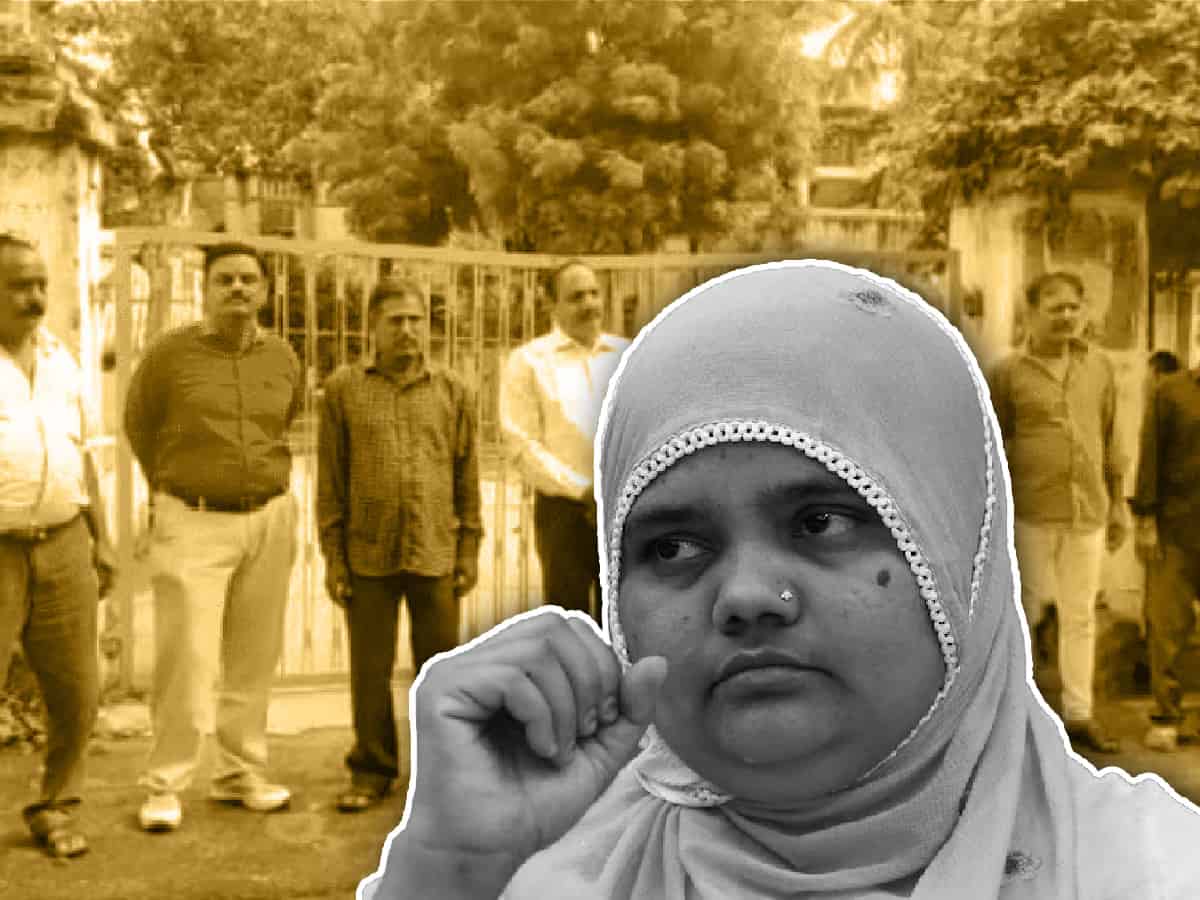
New Delhi: Bilkis Bano on Wednesday approached the Supreme Court challenging the premature release of 11 men convicted of gangraping her in the 2002 Gujarat riots.
Bilkis Bano filed a review plea against the May order of the Supreme Court which allowed the Gujarat government to apply the 1992 Remission Rules to release the 11 convicts.
Her lawyer mentioned the matter before Chief Justice of India DY Chandrachud for listing.
CJI said he will examine the issue whether both pleas can be heard together and if they can be heard before the same bench.
The Gujarat government had released 11 men, who were sentenced to life imprisonment, on August 15 this year. All the 11 life-term convicts in the case were released as per the remission policy prevalent in Gujarat at the time of their conviction in 2008.
Bilkis’s story and Gujarat riots 2002
Twenty years ago, on February 28, 2002, Sabarmati Express carrying karsevaks was set on fire in Godhra station. What followed the attack on the train were riots that claimed the lives of thousands of innocent victims, mostly Muslim families.
Bilkis Bano, who was a little less than 21 years of age and five months pregnant at that time, tried to flee the state with her family, including her three-year-old daughter – Sahela.
A resident of Randhikpur village in Dahod, her Hindu neighbours had set fire to most of the Muslim houses, including hers.
Terrified, Bilkis and her family ran for their lives. Their aim was to reach a Muslim majority settlement.
According to an article by The Wire, the family met many compassionate people on their way. They first took refuge at the residence of the village Sarpanch, then in a school in the village of Chunadi, and thereafter in the village mosque of Kuvajal.
On March 3, 2002, the family reached Pannivel village and took refuge in a field. However, they were soon cornered by 20-30 Hindu men, armed with sticks, sickles, and swords.
As they shouted, ‘Aa rahya Musalmano, emane maaro, kaato,’ (these are the Muslims, kill them, cut them’) Bilkis recognized many faces. One was the son of a doctor who treated Bilkis’s father, another was a shopkeeper who sold bangles, another ran a hotel and was the husband of an elected member of the gram panchayat.
Bilkis had grown up with all these men. They were no strangers to her.
What followed was a blood bath and a cry for mercy as one by one Bilkis’s family members were killed. Four women including Bilkis and her mother were brutally gang raped and assaulted. One of the accused – Shailesh Bhatt – snatched Bilkis’s daughter from her arms and smashed the toddler’s head onto the ground, killing her instantly.
Fifteen of her family members were killed that day. Her cousin who had given birth to a baby girl the previous day was brutally ripped off, raped, and killed along with her infant. Bilkis was left naked, bleeding, and unconscious.
As a shattered Bilkis woke up surrounded by the bodies of loved ones, she ran up a hill covering her body with whatever she could find. That night she spent alone, grieving.
The next day she borrowed some clothes from an Adivasi woman and went straight to the Limkheda Police Station.
Being the lone witness to the slaughter, she tried to register her complaint but police head constable, Somabhai Gori, refused to acknowledge or record her complaint.
The constable took Bilkis to a relief camp where she was reunited with her husband Yakub Rasool.
(with inputs from ANI)
